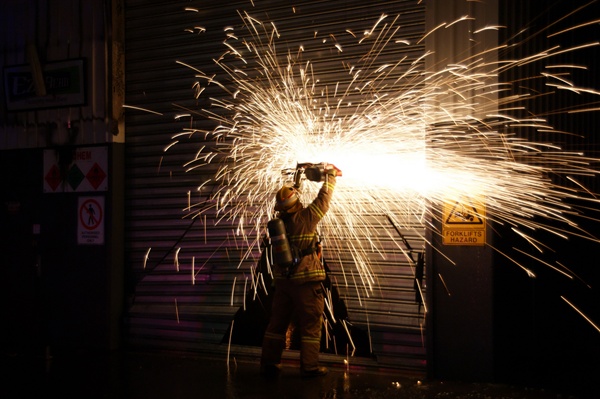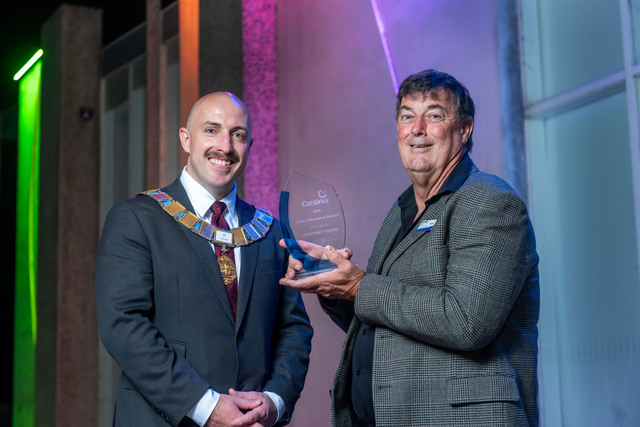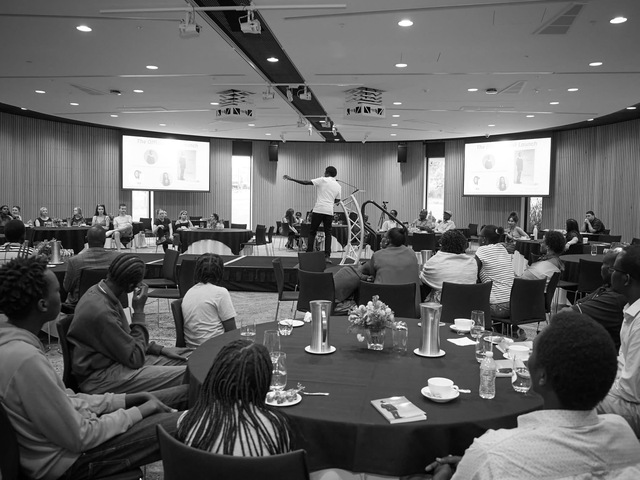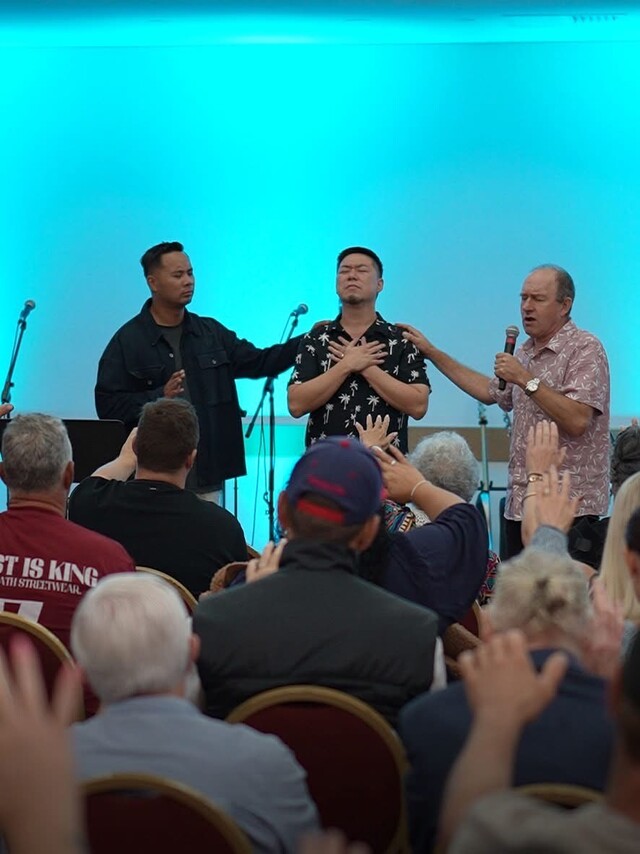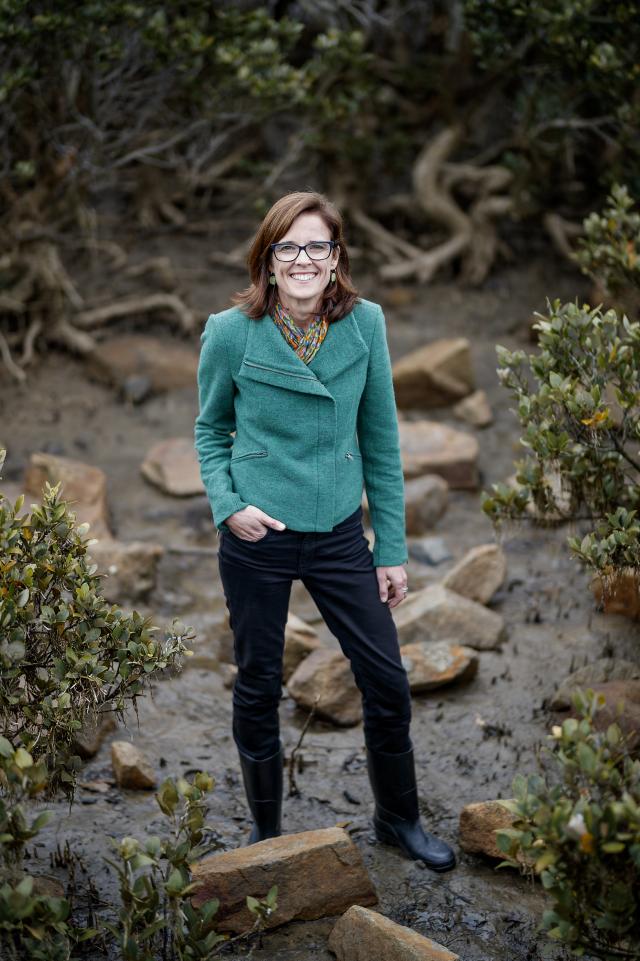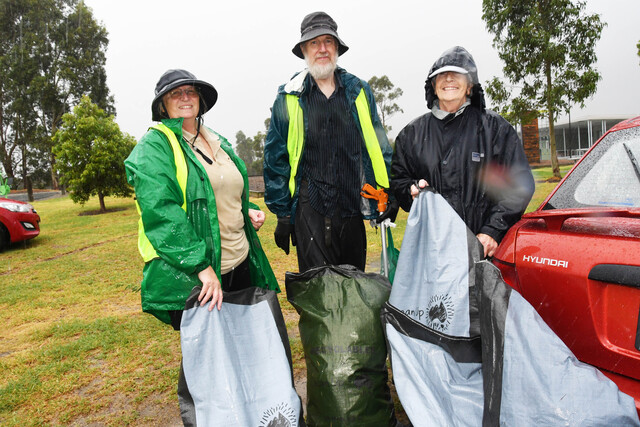James Taylor visits youth who are looking for an audience.
SITTING amid a group of six at a table, Annie ponders the plot in her screenplay. She runs through the scenes with the group at a workshop in the south-east suburbs, aimed at honing the talents of students aged 14 to 19 to develop their script ideas and perform them live.
Its title is Whatever Mistress Wanted, set in the 1920s and heavy on mystery. ‘‘I’ve just written dialogue, there’s very little stage direction,’’ she tells the group at the Narre Warren library. She describes a potential scene. There are two characters: a butler and her employer — the mistress of the title — discuss a Mr Dratton, and his mission to retrieve a package.
Annie says her characters are very well educated. ‘‘Because the butler lived in the household, he picks up the accent. He’s Spanish but doesn’t speak Spanish, but does speak a bit of French.’’
Fellow student Kate chimes in that she likes the title. ‘‘It’s about loyalty and duty. It’s about the relationship between the butler and the mistress, not anyone else.’’
The workshop is part of Page To Stage sessions run by writer, director and actor Riannon Berkeley. The group is in capable hands: Berkeley has a bachelor of performing arts from Monash University, where she specialised in script writing, directing and research.
The students are told about Aristotle’s five forms of conflict in literature. Chloe, one of the six students in the group, weighs up two possible titles for her work — Unsure Love or How Do You Tell — and three characters: Charlotte the protagonist; Spencer the love interest; and Charlotte’s aunt, who acts as her guardian. Chloe says the story is set in Charlotte’s home and recreation room, which is in a garage.
Across the south-east suburbs, young people are finding their own voices to break in to the world of films, television shows and drama.
Last year, budding filmmakers at schools in Noble Park and Oakleigh were listed among the best in Australia in Screen It, a national moving image competition for primary and secondary schools run each year by the Australian Centre for the Moving Image. Screen. It drew a record 499 entries.
Sacred Heart Girls College student Bethany Auhl’s short film, called Universal and Unconditional, was a runner-up in one category — the Croydon Film Society Award. The 17 year old student at the Oakleigh school chose to have her work experience with a video production company and hopes to make a career in the performing arts.
Media studies teacher Shellie Melrose says Bethany is one of her best students. ‘‘She gives 200 per cent, that’s what she’s like.’’ Melrose describes Bethany’s film as a glimpse into the lives of random people and an illustration of why you shouldn’t judge a book by its cover.
St Anthony’s Catholic School in Noble Park was a runner-up in the primary school section of Screen It’s live-action category with a film called News 101. The school also received a special commendation in a Bullying. No Way! award, presented to films that best tackled the issue of bullying.
At the Page To Stage sessions, Berkeley says students need help to expand on their ideas. ‘‘By the end of the first session, everyone had an idea they would like to work with. There’s musical theatre, straight theatre, film and poetry.
She starts the session by asking the group to put their character into a place that will explain some of their characteristics to the audience. ‘‘Say, Count Dracula. He lives in a castle, there’s lightning and thunder and it’s very dark; and it reflects his character. The audience thinks: who lives in this castle?’’
‘‘A fluffy white bunny,’’quips Annie.
After a number of exercises, including a crash course in writing a dramatis personae, the group is ready to talk through their scripts. There’s romance, comedy and drama. The ideas are getting even more sophisticated.
After the session has ended, Berkeley is very impressed with the results. ‘‘I’ve been in rooms where I’ve done workshops with university students, and these ideas are running at their heels,’’ she says. ‘‘You’ve all got gems here.’’
Finding that killer idea for screen or stage is the major obstacle for the next generation, says screenwriter Sandra Sciberras, who lectures on film and television at the Victorian College of the Arts.
‘‘A good story is a good story, whether it comes from a 19 year old, a 22 year old or a 50 year old. But if you’ve been lurking around the edges for 15 years and you don’t come up with the idea that someone wants, you’ll just get bowled over.’’
She says many of the concepts behind the most popular shows of the past are cropping up again today. ‘‘Whether it’s Modern Family or I Love Lucy, it’s all the same idea — families in their world struggling for a little bit of happiness.’’
Sciberras says screenwriting is not as glamorous as it looks on TV shows such as Entourage and should be taken as seriously as any business.
‘‘The feeling is screenwriting is something anyone can do — there’s courses you can do on the internet — and it’s just not. Having an idea is one thing, but having the ability to turn it into something tangible and interesting and something people want to watch is another.’’
Entries for Screen It 2012 are now open. Visit acmi.net.au/screenit.aspx.
* Open Channel holds regular short courses and competitions in filmmaking and screenwriting. Visit openchannel.org.au.

